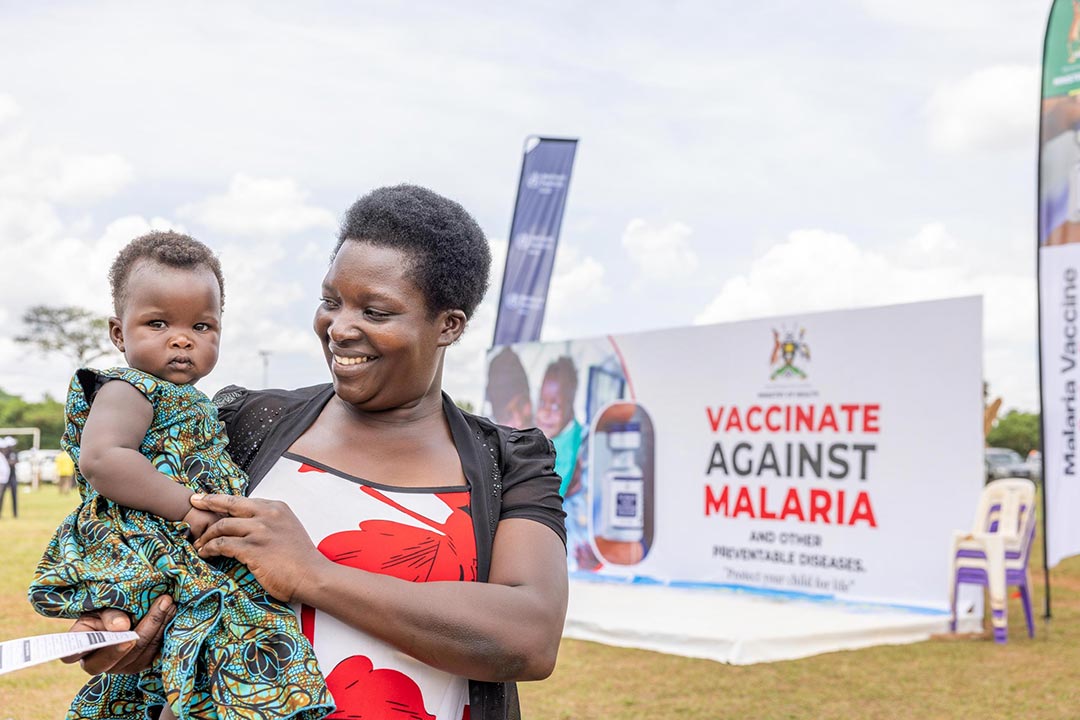
Uganda has embarked on a groundbreaking initiative to combat malaria by launching a national malaria vaccine rollout, marking a historic milestone in the country’s ongoing efforts to reduce the impact of the disease. With support from the Malaria Consortium, this vaccine program is poised to dramatically improve public health outcomes, particularly for children under the age of five, who are the most vulnerable to malaria in Uganda and across sub-Saharan Africa.
The rollout is part of a broader global effort to introduce the RTS,S malaria vaccine, which has demonstrated significant promise in clinical trials and is seen as a crucial tool in the fight against the disease. The vaccine, developed by GlaxoSmithKline in partnership with the PATH Malaria Vaccine Initiative, has shown to reduce malaria cases and severe illness in children by approximately 30% when administered in a series of four doses.
Uganda, one of the countries with the highest malaria burden, has long faced challenges in controlling the disease despite widespread use of insecticide-treated nets, indoor spraying, and antimalarial medications. Malaria remains a leading cause of illness and death, with thousands of lives lost every year. The introduction of the malaria vaccine is seen as a critical step toward achieving the World Health Organization’s goal of reducing malaria deaths by 90% by 2030.
The Malaria Consortium, a prominent international organization focused on malaria control and prevention, has played a pivotal role in the rollout by providing technical assistance, funding, and capacity-building support. Their involvement ensures that the vaccine distribution process reaches the most remote and underserved areas, where malaria remains particularly prevalent. This partnership is also integral in training health workers and educating communities about the vaccine’s benefits.
Health officials are optimistic that the vaccine, along with existing preventive measures, will significantly reduce the malaria burden. Dr. Jane Ruth Aceng, Uganda’s Minister of Health, expressed her excitement over the initiative, highlighting the positive impact it will have on the country’s children and families. She noted that malaria vaccination, combined with other malaria prevention strategies, will not only save lives but also reduce the economic burden associated with the disease.
The vaccine will be administered through routine immunization schedules, with priority given to children living in areas with high malaria transmission. Health teams will work closely with local communities to ensure that families are well-informed about the vaccination process and the importance of completing the full vaccine series.
As Uganda embarks on this ambitious malaria vaccine rollout, the success of the program will serve as a model for other countries in the region. If successful, this initiative could pave the way for broader adoption of the RTS,S vaccine in other high-risk nations, further accelerating the global fight against malaria.
While challenges remain, including vaccine accessibility, logistics, and public perception, the collaboration between Uganda, the Malaria Consortium, and other stakeholders is a critical step forward. With continued investment and support, this groundbreaking malaria vaccine rollout offers a hopeful future for the millions of people affected by malaria in Uganda and beyond.

